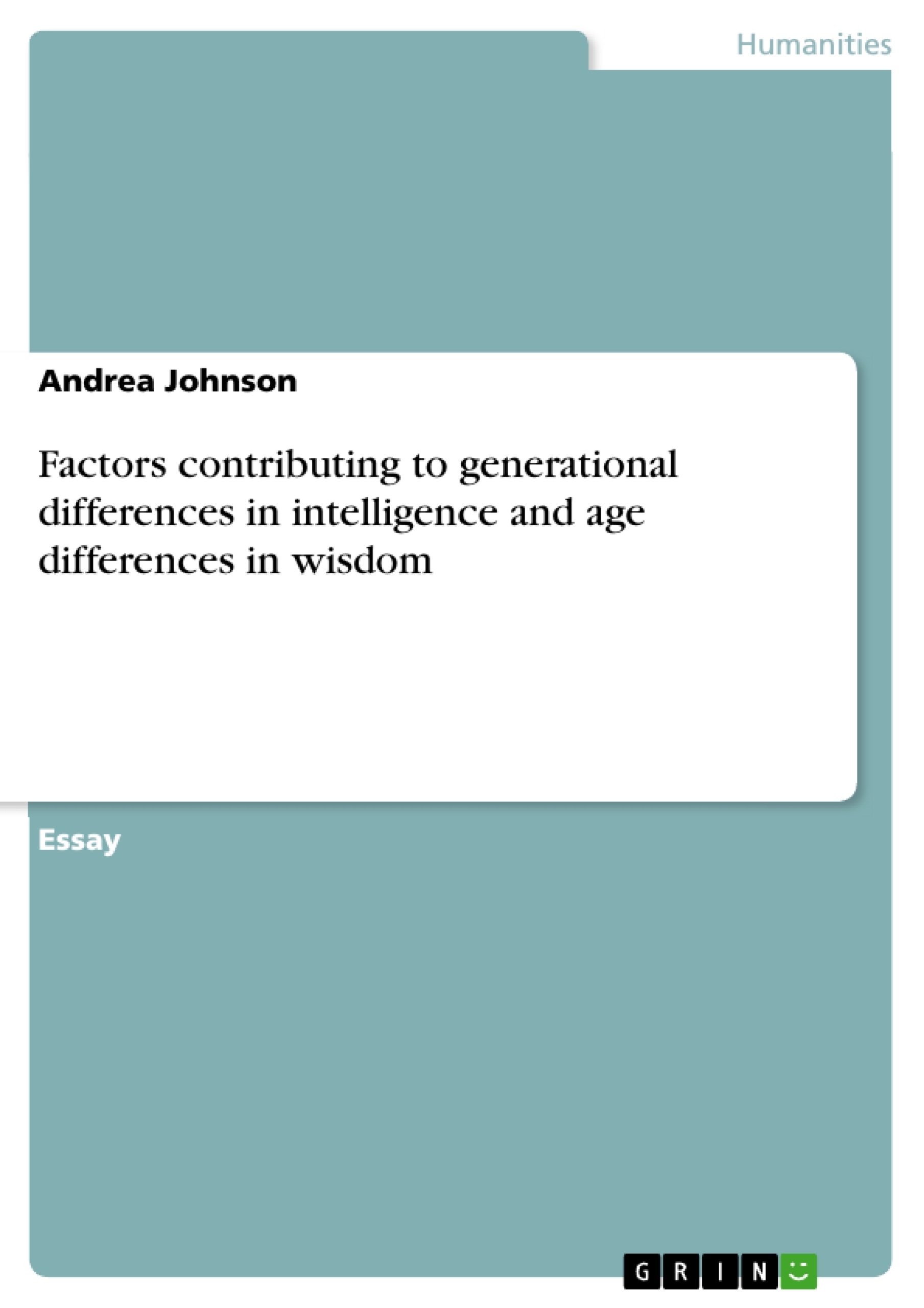In what ways are you smarter than your parents and grandparents and in what ways are these two older generations smarter or wiser than you? What are some factors that contribute to generational differences in intelligence and age differences in wisdom? An short essay.
Inhaltsverzeichnis (Table of Contents)
- Generational Differences in Intelligence and Wisdom
- Defining Intelligence
- Intelligence Over Generations
- Wisdom: Beyond Intelligence
- Adaptation to Technology
- Generational Perspectives on Learning
- The Role of Experience
- Millennials and the 'Flynn Effect'
Zielsetzung und Themenschwerpunkte (Objectives and Key Themes)
The article explores the differences in intelligence and wisdom between generations, focusing particularly on the differences between the author's generation, their parents, and their grandparents. It examines the role of technology in shaping intelligence and explores the concept of wisdom as a distinct concept from intelligence.
- Impact of technology on intelligence
- Defining intelligence and wisdom as separate concepts
- Role of experience in developing wisdom
- Generational differences in learning styles and adaptability
- The "Flynn effect" and its implications for generational intelligence
Zusammenfassung der Kapitel (Chapter Summaries)
- The article begins by posing the question of how generations differ in terms of intelligence and wisdom. It explores how technology has impacted intelligence, particularly in the author's generation, highlighting the access to information and the ability to solve problems quickly.
- The author delves into the definition of intelligence, suggesting that it encompasses a wide range of abilities, including problem-solving, academic skills, analytical thinking, and emotional intelligence.
- The article discusses the concept of intelligence as a generational phenomenon. It cites research showing that intelligence scores have increased over generations due to advances in technology, education, and healthcare.
- The author distinguishes between intelligence and wisdom, emphasizing the importance of experience in developing wisdom. He argues that while technology can enhance intelligence, wisdom requires personal experience and a deeper understanding of life.
- The article examines the adaptability of different generations to technology. It highlights how parents and grandparents have successfully adapted to the modern world, while millennials, despite being more comfortable with technology, may lack the same level of experience and wisdom.
- The author explores the different learning styles and approaches to knowledge acquisition across generations. He notes that older generations are more likely to adjust their learning methods while millennials often rely heavily on digital tools.
- The article emphasizes the importance of experience in developing wisdom. It argues that while the author's generation may be more intelligent due to technological advancements, their parents and grandparents possess wisdom gained through life's experiences.
- The author discusses the "Flynn effect," which indicates a progressive increase in IQ scores over time. He attributes this trend to the growing access to education and technology, but highlights that the wisdom gained through experience remains essential.
Schlüsselwörter (Keywords)
The primary focus of the text is on the differences in intelligence and wisdom between generations. Key terms include technology, intelligence, wisdom, experience, generational differences, learning styles, adaptability, and the "Flynn effect." The article delves into the impact of technology on intelligence, the distinction between intelligence and wisdom, and the importance of experience in developing wisdom. It also explores the role of generational factors in shaping learning styles and adaptability.
- Quote paper
- Andrea Johnson (Author), 2016, Factors contributing to generational differences in intelligence and age differences in wisdom, Munich, GRIN Verlag, https://www.grin.com/document/387039




